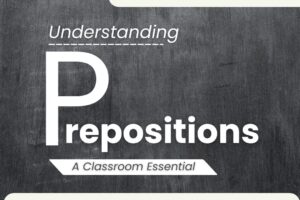
A Statement of Purpose(SOP) is a long detailed essay, an essential part of the admission process to the university. It gives a detailed overview of the candidate’s academic history, skills, and future goals. SOP gives the admission committee an insight into the candidate’s personality, qualifications, experience, accomplishments, and potential while LOR is a document written by someone who can attest to an individual’s qualifications, skills, character, and achievements.
Importance of SOP
- A Statement of Purpose is crucial in determining a candidate’s admission to their preferred educational institutions.
- SOP gives the admission board a clearer perspective of your personality, academic background, career goals and interests.
- It manifests your potential, knowledge, achievements, beliefs and commitment towards your passion.
- The way you communicate and express your thoughts to the admission committee about how you are suitable for a particular course at your preferred university should be superlative for your SOP to stand out from the crowd.
- If your academic background is lacking in any area, compensate for it by showcasing your future aspirations and prominent accomplishments.
Basic SOP Format for Undergraduate
A basic format of a statement of purpose when applying for undergraduate admissions can be briefly explained as follows:
Academic and Professional History:
Introduce yourself to the admissions committee in 2-3 lines. Summarise all your academic qualifications, accomplishments, and challenges. If you have professional experience, mention it.
- Example: I am [Your Name], a passionate and driven individual seeking admission to pursue my undergraduate studies in [Your Chosen Field] at [University Name]. My unwavering passion for [Field] has been the driving force behind my academic journey, and I am eager to embark on this exciting chapter of my education at your esteemed institution.
Reasons to Pursue a Particular Course:
Perform thorough research about your preferred course. Interpret your passion for the subject, and bring up related activities and work you have done. Mention your expectations from the course.
- Example: During my high school years, I immersed myself in a rigorous curriculum that included advanced coursework in [Subject]. My academic prowess was recognized when I received the [Name of Award] for my outstanding performance in [Specific Project or Subject]. These experiences not only sharpened my analytical and critical thinking skills but also solidified my commitment to pursuing a degree in [Your Chosen Field].
Career Goals and Plans:
Mention your long-term and short-term goals and various career aspirations related to your selected course. Talk about the bright prospects related to the course you are applying for.
- Example: My journey in [Field] began when [Provide a Personal Anecdote or Academic Experience]. This encounter ignited a passion within me to explore the complexities of [Field]. As I delved deeper into my studies, I encountered challenges such as [Describe a Challenge], which, instead of deterring me, fueled my determination to overcome obstacles. Through these experiences, I have honed my perseverance and developed a deep-seated commitment to contributing meaningfully to the advancements in [Your Chosen Field].
Reasons to Choose a Particular University:
Always do in-depth research about the universities you intend to apply. Mention your expectations from the university and details about their curriculum and facilities and how they are beneficial.
- Example: I am drawn to [University Name] because of its renowned [Department/Program] and the innovative research conducted by [Professor’s Name]. The [University’s Unique Feature] aligns seamlessly with my academic and career goals, offering a distinctive environment where I can thrive as a student and contribute to the intellectual vibrancy of the community.
Extracurricular and Leadership Activities:
Discuss your involvement in extracurricular activities, leadership roles, or community service. Highlight how these experiences have contributed to your personal growth and prepared you for success in your chosen field.
- Example: Beyond academics, I have actively participated in [Extracurricular Activity] where I [Describe Your Role and Achievements]. These experiences have instilled in me the importance of collaboration, effective communication, and leadership—qualities I believe are integral to excelling in both academic and real-world settings.
Conclusion:
Conclude by explaining why you are a suitable candidate with your qualifications and extracurriculars and have the potential to succeed in your chosen field and make a difference.
Example: In conclusion, my journey thus far has fueled my passion for [Your Chosen Field], and I am excited about the prospect of furthering my education at [University Name]. I am confident that the unique combination of my academic background, extracurricular experiences, and unwavering determination make me an ideal candidate for the undergraduate program at your esteemed institution. I am eager to contribute to and thrive in the vibrant academic community at [University Name].
Points to Remember While Writing Your SOP
- Check the word limit recommended by the university. Don’t exceed or fall short of the mentioned word limit.
- Use positive and crisp language.
- Be truthful in your SOP, as any misrepresentation may result in the rejection of your application.
- Using multiple fonts and colours is not recommended.
- Do not copy SOP from the internet or anyone. Originality is deemed important during the evaluation of your SOP.
- Avoid too complex language and ensure everything is grammatically correct.
Conclusion
Remember to personalize each section with your own experiences, achievements, and aspirations. Tailor the examples to fit your unique story, and make sure to check for grammar and clarity. Good luck with your application!








